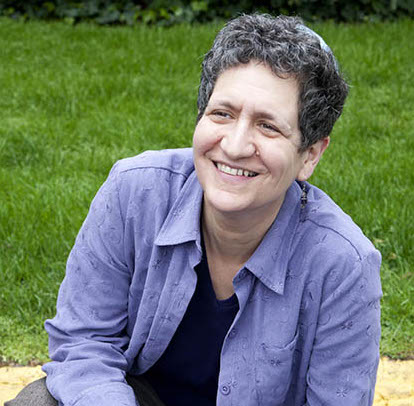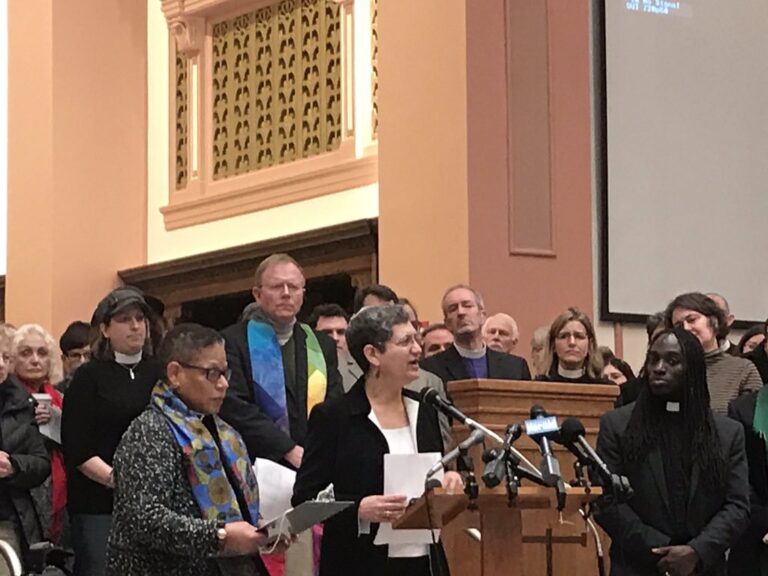
Kaplan, Chosenness & Us
Rabbi Mordecai Kaplan’s arguments against chosenness still ring true.

Rabbi Toba Spitzer has served Congregation Dorshei Tzedek since she was ordained in 1997 at the Reconstructionist Rabbinical College. Rabbi Spitzer is a popular teacher of courses on Judaism and economic justice, Reconstructionist Judaism, new approaches to thinking about God, and the practice of integrating Jewish spiritual and ethical teachings into daily life. In March of 2022 she published her first book, God Is Here: Reimagining the Divine, from St Martin’s Press (you can learn more about the book at www.rabbitobspitzer.net). Spitzer served as the president of the Reconstructionist Rabbinical Association from 2007-09, and was the first lesbian or gay rabbi to head a national rabbinic organization. She has received the honor of being included in Newsweek’s Top 50 Rabbis in America 2008 list, the 2008 Forward 50 list, as well as the 2010 Forward list of 50 Female Rabbis Who Are Making a Difference. In January 2015, Rabbi Spitzer was awarded the Elizabeth Wyner Mark Peace Award by Americans for Peace Now. Rabbi Spitzer has been involved for many years in American Jewish efforts to help foster a just and peaceful resolution to the Israeli-Palestinian conflict, as well as work in the U.S. for economic and social justice. She is a former president of the Massachusetts Board of Rabbis, served for a decade on the board of T’ruah: The Rabbinic Call for Human Rights, and also serves on the Advisory Board of J Street. Her writings on process theology, Judaism and social justice, and explorations of biblical texts have been published in The Reconstructionist Journal and in the anthology Torah Queeries: Weekly Commentaries on the Hebrew Bible. While a student at RRC, she organized a rabbinic delegation to Haiti to serve as human-rights witnesses during the military junta. The trip and resulting Haitian-Jewish seder are described in her article “Of Haiti and Horseradish,” in The Narrow Bridge: Jewish Views on Multiculturalism, edited by Marla Brettschneider. Toba grew up in the Washington, D.C., area and earned her undergraduate degree at Harvard-Radcliffe. She has a life goal of bowling in all 50 states—34 down so far!

Rabbi Mordecai Kaplan’s arguments against chosenness still ring true.

How might we understand reparations as a Jewish issue?

Ultimately, the mitzvah of “loving all those who dwell in the land” invites us into some radical acts of compassion.

Drawing from her involvement with groups ranging from T’ruah to the New Jewish Agenda, Rabbi Toba Spitzer explains the power of two disparate narratives in describing, understanding and working to find commonality within the American Jewish discourse on Israel/Palestine.
Rabbi Toba Spitzer dives into the use of metaphors in framing a picture of the Jewish people that is encompassing and defining, drawing on three conceptual metaphors: “covenant,” “narrative” and “tribal.”

Jews and non-Jews have internalized varying degrees of antisemitism, including the insidious idea that Jews should “disappear.” This trope of erasure opens up a new frame through which to consider the connections between antisemitism and anti-Zionism.

Adding onto Rabbi Brant Rosen’s response essay, Rabbi Toba Spitzer further defines her use of “narrative” in relation to the Israeli-Palestinian conflict, and the struggle for liberation from trauma and oppression.

We are heir to a rich assortment of metaphors for God that may resonate more powerfully than the High Holy Day images of king and judge.

On the impact of slavery and the white Jewish obligations to respond.
